- Home
- Blake Pierce
Face of Murder (A Zoe Prime Mystery—Book 2) Page 3
Face of Murder (A Zoe Prime Mystery—Book 2) Read online
Page 3
“As for the professor, looks like there were only cameras at the entrance to the parking lot. So many people come in and out of there all day, and we don’t have eyes on one of the pedestrian exits at all. Nothing suspicious caught on camera.”
“No leads at all,” Zoe noted, propping her chin on one hand as she went over the equation for the seventeenth time already. Slower, faster, it wasn’t making much difference. This was like nothing she had ever come across. Far beyond the level that she had studied during her own time in college.
She switched to the other one, the professor. It seemed just the same. What was this?
“What do you want to do first?” Shelley asked, completing her own study of the files.
“Just a second.” Zoe had not even taken the time to check the second victim’s particulars yet, but there was time for that. She took out her notebook and pen and started writing, making quick and sharp indentations on the page as she began to sketch out an initial working. Greek letters, lines, brackets, downward-pointing triangles—all symbols in quantum math had an equivalent meaning that would reveal a number. M divided by t” minus t’, one divided by s’ then added to one divided by s”, and so on and so forth, all to find the value of B1 which could later be inserted back into another line of the equation to work out the value of another figure.
The workings started easily enough. If the value of M was equal to the value of r’, then the first two lines made perfect sense; but then the third line disrupted it all, and appeared to give a totally different value for M. Fine; she worked it through another way. Perhaps M was, in fact, double the value of r’, which still made enough sense there, and made the third line work—but by the sixth line, the value of M had to be shown to reach zero, and there again it all made no sense.
When Zoe looked up again, she had no idea how much time had passed. At some point, Shelley had sat down opposite her, and was thumbing through something on the screen of her cell.
“This does not make any sense,” Zoe announced.
Shelley looked up, lifting a carefully shaped eyebrow. “You can’t work them out?”
Zoe’s lips flattened into a thin line before she could make herself admit it. “I cannot work them out yet,” she said. “Maybe we are missing some kind of clue. This is definitely all of it? There was not something written on their backs, or arms, or elsewhere?”
“I know as much as you know,” Shelley said. “I’ve been reading up on the professor. Nothing stands out from his academic history, or from what I can see of his personal life that has made it online.”
“Check the photos again,” Zoe suggested, handing her a bundle and picking up some for herself. She pored over the shots, her eyes taking in the angles of bones, the degree at which a leg had bent in death, the length of the rips in their shirts versus the visible strength of the material and its stitching. Nowhere could she see any connection. Not in their heights, weight, their ages—and no hint of any other ink slashed across their skin.
The worrying thing, of course, was that mathematical patterns became easier to predict the more data you had. Two numbers could seem unconnected, any number of possibilities between them, too many to decide on a definite course. Three numbers, well, that would allow one to make more of a case, begin a formula. But that would require another death.
And they certainly didn’t want another death.
“I’ve got nothing,” Shelley said, shaking her head.
“Swap,” Zoe suggested, handing her bundle over and taking Shelley’s in return. “The only thing of note is the angle of the impact on the first victim’s head. The attacker was a little shorter, probably five nine.”
And again, it was the same. The same frustrating nothing. No hint of ink on clothing, no trailing off of the numbers underneath fabric, nothing in the general vicinity. The parking garage spaces were not numbered, and nor were there numbers on the walls, on the concrete columns holding up the ceiling, on the grass near where the student was found.
Nothing.
Zoe gave up, shaking her head. “I need to see the professor’s body,” she said. “It is the only way we are going to spot something that the photographs do not already tell us.”
“Great,” Shelley said. It was possible that she was being sarcastic; Zoe had always had a hard time telling the difference. “Then let’s go take a close look at a dead guy.”
CHAPTER FOUR
Zoe tapped her fingers on the steering wheel as they drove over to the local coroner, glancing sideways at Shelley. There was something about this case that was already bothering her, and she had to voice the doubts that were creeping into her head before they became obsessive. “It’s funny that Maitland knew I would want to work on a math-based case. I have never discussed with him that I enjoy working with numbers.”
Shelley cleared her throat slightly, not turning to meet Zoe’s eyes. “Well, I volunteered us for this one. I just happened to hear it coming in, and, well, the chief agreed we could take it.”
Zoe digested this for a moment. She didn’t usually get things from her boss just because she asked for them. “Just like that? You did not need to persuade him?”
Shelley was twisting the pendant she wore, a gold arrow set with a diamond that she had inherited from her grandmother, around and around in her fingers. “I told him that since you were really good with math, we would be able to get a better start on it than anyone else.”
Zoe resisted the urge to slam on the brakes, keeping the car steady and smooth. She focused on the road until the rushing in her head had slowed down, and spoke deliberately and calmly. “You said I was ‘good with math’?”
“That’s all I said, I swear. I didn’t tell them the truth. Not about, you know, what you can do.”
Shelley sounded apologetic, but that was not quite enough to make the roaring in Zoe’s ears go away. Good with math. That was close to the truth, too close to be comfortable. It was almost an admission.
Maybe she had made a grave mistake, trusting Shelley to not give away her secret. But her partner had sworn, so many times over, that she would never reveal it to anyone without Zoe’s consent. While she technically had still not done that, it was close. Too close.
“Look, it’s fine, isn’t it?” Shelley asked. Her voice had risen in pitch now. “I’m really sorry if you didn’t want me to say that, but it’s just a little piece of the way things really are. Not the whole picture. And anyone can be good at math, you know? It doesn’t make you that much different.”
Zoe’s fingers tightened on the steering wheel, so tight the rubber grips made a quiet noise, and she worked her jaw stiffly. “It was not up to you to tell them that.”
“I just—I didn’t think it would be a big deal, to say that much.” Shelley sighed, slumping back against the passenger seat headrest. “I messed up, I can see that now. I’m sorry. But after you solved our big case in Kansas, surely they would have to figure that you’re good with numbers anyway. I know I can’t tell anyone, and I won’t, but I don’t know why you feel you need to hide it.”
Zoe gritted her teeth. Of course, Shelley didn’t understand. Shelley hadn’t been there. She hadn’t been forced to pray by her bed on the cold floor all night, her mother shrieking and sermonizing about the devil’s gift. She hadn’t been scolded at school for her distraction, or made fun of and ostracized by the other children for the uncanny things she could tell just by looking at them.
She hadn’t been there through every failed relationship Zoe had endured, misunderstood time and time again, left with nothing but the label “freak” and another broken heart.
“It is my secret to tell, or not, as I choose,” she said firmly, once her heart was beating slow enough again that she could say the words instead of spit them, and Shelley had the wisdom to forgo a reply.
They pulled up outside the coroner’s office and Zoe slammed the car door behind her, stalking over to the entrance. Then she stopped. It would do no good at all to go into the examinati
on with this kind of energy hanging over her. She had to forget it, put it on a shelf inside her mind and come back to it later. For now, she had to be professional.
The coroner, a trim Asian woman in her mid-forties with sharp eyes and hair cut at a sharp ninety-degree bob in line with her chin, was obliging enough. She showed them the professor’s body, and stood back respectfully while they made their examination.
Lying naked on the metal gurney, the man was reduced to nothing more than white meat. Take the sheet away, and it was hard for Zoe to connect and keep connected the lines between this hunk of dead flesh and the man it had been. Whoever he was had long gone. She could see it still, in the yellowed fingertips that spoke of a nicotine habit and the small inch-long impression over his left ear where he had spent years wearing ill-fitting glasses. But the essence, the being, whatever it was that had once filled this body and animated it, was nowhere to be found.
It was better that way. People distracted her. They hid their true selves behind words and gestures that she could not always understand. But bodies could not lie. They were as they were, no more and no less.
It didn’t hurt, of course, that his face was gone. Smashed inward. The nose had been reduced to an entirely flat plane of the face, all the bumps and curves pressed against the inside of his skull now. The right side of the head, too, was cracked and squashed, bearing clear lines of impact. No one could have survived that. Even one of his eyes was gone.
The equation was there on his torso, written out sideways from the top of his chest to just below his navel. It was all as it seemed in the photographs—the full piece had been captured faithfully. Wearing uncomfortable white disposable gloves, Zoe turned over each of his arms and legs, and even hefted him onto his side with Shelley’s assistance. Nowhere could they see any other trace of ink, or indeed any marking that could hint at being a missing part of the equation.
“They didn’t miss anything,” Shelley said out loud, confirming the growing frustration that was building in the center of Zoe’s forehead.
“The other one.” Zoe turned to look at the coroner. “We need to see the student as well.”
The coroner shrugged, making a gesture that seemed to suggest she thought it pointless, and walked over to open another tray of the metal filing cabinet that served as a temporary resting place. She tugged it open with a long scraping sound of well-oiled metal on metal, and stepped back to allow them access to the resident.
The college student looked even younger than he had in the photographs, lying on the cold metal tray with all the blood drained out of his cheeks and the color with it. The top of his head was a mess, open and crushed inward. He was covered with a respectful sheet, but respect was only an obstacle in this case. Zoe stepped closer and tugged it aside, noting Shelley’s reluctance to do so.
For a long second, Zoe stared, unable to comprehend what she was looking at. Then she briefly wondered if they had pulled out the wrong body, but she had recognized his face from the crime scene photos. Finally, disbelief reigned, and she turned on the coroner with a glower that had the other woman backing away.
“Where are the equations?” Zoe asked, her tone low and flat, menacing enough to tell anyone about the anger behind it.
“Well, we performed the autopsy,” the coroner stuttered, feeling for a metal table behind her to steady herself. “We always wash the bodies to perform the autopsy.”
“You scrubbed away the evidence.”
Shelley stepped closer to lay a gentle hand on Zoe’s arm, perhaps warning her to cool down. Zoe ignored it. She was seething, every muscle in her body wanting to explode in a burst of energy and throw something at the wall. Maybe at the coroner.
The only reason she didn’t was that it was very clearly against the professional code of conduct. How could they have allowed something like this to happen?
“Who authorized the cleaning?” Shelley asked, her tone quiet and calm. She stepped forward, slightly in front of Zoe, as if shielding her.
The coroner fumbled for paperwork, still stuttering, her face gone pale. Zoe couldn’t take any more. She stalked out of the room with a growl in the back of her throat, slamming the door behind her for good measure. It being a swing door, the movement lost some of its effect, but it released some of the tension in her body all the same.
Shelley joined her a couple minutes later, finding her pacing up and down at the end of the corridor.
“We should have them written up for tampering with evidence,” Zoe said, as soon as Shelley was close enough to hear.
“They were within the scope of their instructions,” Shelley sighed, shrugging her shoulders. “The photographer felt they had captured everything. We’re just going to have to take their word for it.”
“They should be punished anyway. Do they not have common sense? It was clearly evidence. And the lead investigators not having even seen the body yet!”
“Well, in fairness, this was a local case when they did the autopsy, not a federal one. What’s done is done. We just have to work with what we have.”
Shelley was being rational; too rational. Zoe didn’t like it. She wanted a justification for the frustration she felt, dammit, a common feeling between the two of them. She hated being made to feel like she was the freak with the problem. Things being done incorrectly was a problem. People were supposed to do the jobs they were paid for. That was how society worked.
“Something like that should have been obviously important,” Zoe said, trying one last attempt at lulling Shelley into her own rage.
It was not to be. “We’ve got to keep moving anyway,” Shelley said, stepping outside and looking back to make sure Zoe was following her. “Should we go talk to the professor’s wife next?”
Zoe nodded, giving up. Maybe she was overreacting. She had been told that she could do that, on occasion.
There was more to this case than the physical evidence on the bodies. Of course, the math was tantalizing, as was the target of a respected university. But there was always another story to be heard from the family of the victims, the people who knew them.
Perhaps Mrs. Henderson would be able to shed some light on her husband’s death—and get this frustrating case wrapped up sooner rather than later.
CHAPTER FIVE
Shelley took the driver’s seat, an uncommon occurrence when she was driving with her partner. Shelley knew that Zoe was normally carsick, but today she was so preoccupied with her equations that she hardly seemed to notice the roads flashing by. She wasn’t even clutching at her seatbelt, her usual tell for discomfort.
Shelley glanced over whenever she had a chance—waiting at intersections or paused in a line of traffic. What Zoe was scribbling down frantically across multiple pages of her notebook made no sense at all to her. They might as well have been hieroglyphics.
Zoe had a real gift when it came to numbers, but there were other sides to that too. A single-minded obsession could take over at times, like now. As much as Shelley wanted to help, she had no idea what was required—and Zoe wasn’t about to tell her. She was like that fairly often, too. Quiet, closed off. Shelley had heard the stories about her previous partners, and it wasn’t hard to extrapolate that she maybe had given up on trusting people with her thoughts a long time ago.
Zoe was used to working alone. If she had her way, Shelley was going to change that. It just might take her a long while to get there. In the meantime, she would have to keep prompting her and reminding her to share her thoughts.
Just maybe not about math. Shelley could trust her to work on the math alone.
The English professor lived across town, in one of the flashier suburbs, white-painted houses with wide lawns and matching white fences. Shelley pulled up outside, killing the engine, and waited for Zoe to notice.
She didn’t even look up.
There were times when Shelley felt that she needed to tread carefully around Zoe—to handle her with the utmost care. With kid gloves. Which was somewhat ironic, given t
hat Shelley spent all of her time at home being a parent. There were more than a few times that she felt she was doing the same thing at work, even if Zoe was the older of the two of them.
“We’re here,” Shelley said, softly, not wanting to startle Zoe out of the middle of the calculations she was working on.
Zoe’s pen hesitated in midair, and she looked up at last. She seemed surprised to be anywhere other than the coroner’s office parking lot. “I just need to finish…”
Shelley raised an eyebrow. “Z, is it going to take less than two minutes to finish? Because if not, maybe we should go and talk to the professor’s wife, and come back to the equation later.”
Zoe sighed noisily, but seemed to agree. She stowed her notebook away in a pocket and got out of the car, which Shelley took as a signal to do the same. She revised her earlier thought: dealing with Zoe wasn’t exactly like dealing with a child. More like a surly teenager, at times.
Mrs. Henderson seemed to have been waiting for them, or at least for someone. She was dressed neatly in a dark floral dress, the muted colors conveying something of what she was going through. Her eyes were rimmed with red, but open and sharp, assessing Shelley and Zoe within moments of their meeting at the threshold.
“I’m Special Agent Shelley Rose, and this is Special Agent Zoe Prime. We’d like to come in and talk about your husband, Mrs. Henderson.”
The woman nodded, gesturing them inward, stepping out of the way so that she could close the door after they entered. The house was furnished in an understated classic style, all dark wood and comfortable cushions and throws. Mrs. Henderson led them through into a lounge area, where Shelley gratefully accepted the offer of coffee on both Zoe’s and her own behalf.
“She’s taking it very well,” Shelley murmured, casting an eye around their new setting. It was neat, not a single item out of place. No dust on the low, marble-topped coffee table or the dark sideboard weighed down with mementos and tchotchkes. Several pieces of fresh fruit rested in a burnished bowl in the center of the table. It looked more like a television set than a home that was actually lived in.

_preview.jpg) Once Gone (a Riley Paige Mystery--Book #1)
Once Gone (a Riley Paige Mystery--Book #1)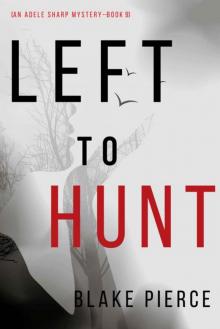 Left to Hunt (An Adele Sharp Mystery—Book Nine)
Left to Hunt (An Adele Sharp Mystery—Book Nine)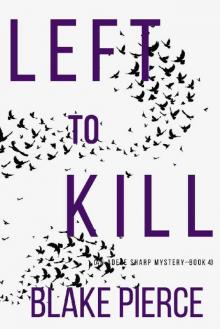 Left to Kill (An Adele Sharp Mystery—Book Four)
Left to Kill (An Adele Sharp Mystery—Book Four)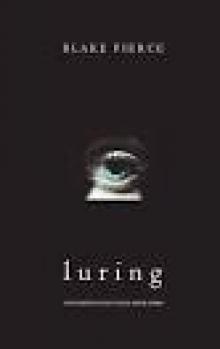 LURING
LURING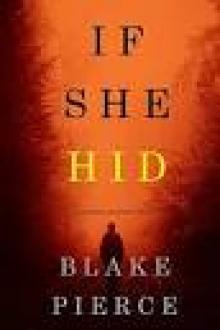 If She Hid
If She Hid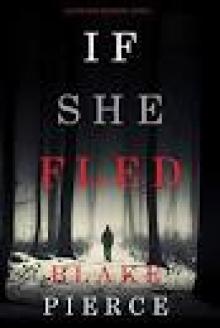 If She Fled
If She Fled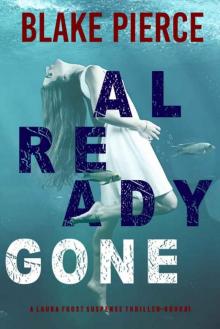 Already Gone (A Laura Frost FBI Suspense Thriller—Book 1)
Already Gone (A Laura Frost FBI Suspense Thriller—Book 1) Vengeance in Vienna
Vengeance in Vienna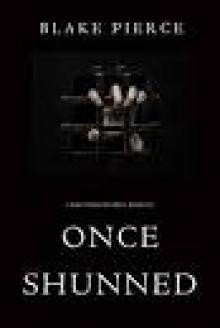 Once Shunned
Once Shunned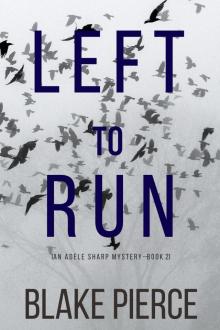 Left To Run
Left To Run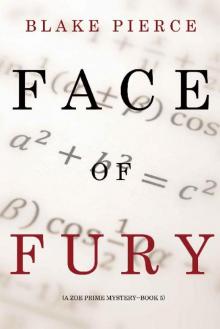 Face of Fury (A Zoe Prime Mystery--Book 5)
Face of Fury (A Zoe Prime Mystery--Book 5)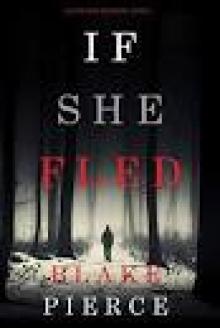 Blake Pierce - Kate Wise - 5 - If She Fled
Blake Pierce - Kate Wise - 5 - If She Fled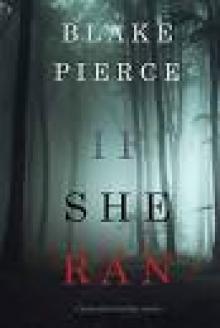 IF SHE RAN
IF SHE RAN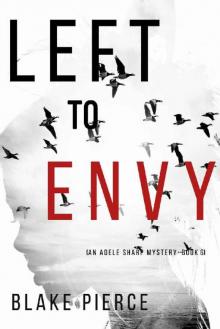 Left to Envy (An Adele Sharp Mystery—Book Six)
Left to Envy (An Adele Sharp Mystery—Book Six) Silent Neighbor
Silent Neighbor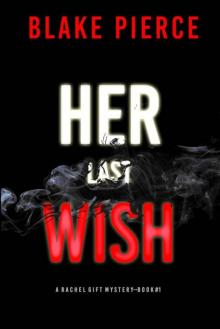 Her Last Wish (A Rachel Gift FBI Suspense Thriller—Book 1)
Her Last Wish (A Rachel Gift FBI Suspense Thriller—Book 1)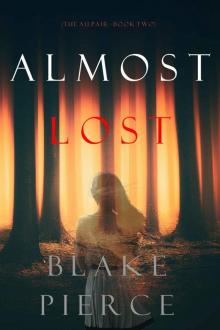 Almost Lost
Almost Lost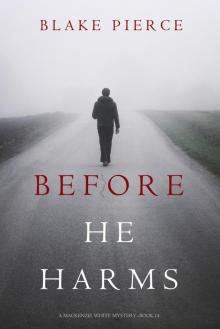 Before He Harms
Before He Harms Murder (and Baklava) (A European Voyage Cozy Mystery—Book 1)
Murder (and Baklava) (A European Voyage Cozy Mystery—Book 1)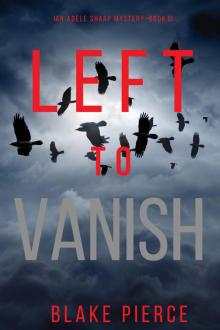 Left to Vanish (An Adele Sharp Mystery—Book Eight)
Left to Vanish (An Adele Sharp Mystery—Book Eight)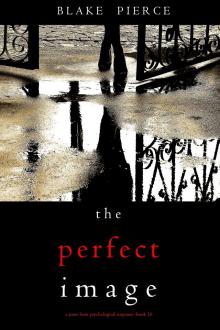 THE PERFECT IMAGE
THE PERFECT IMAGE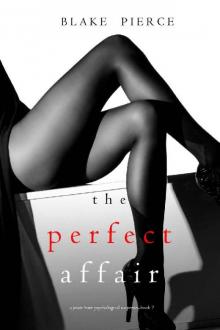 The Perfect Affair (A Jessie Hunt Psychological Suspense Thriller—Book Seven)
The Perfect Affair (A Jessie Hunt Psychological Suspense Thriller—Book Seven)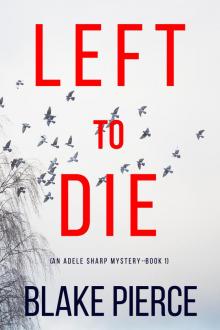 Left To Die
Left To Die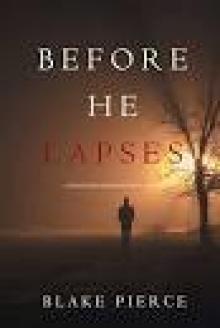 BEFORE HE LAPSES
BEFORE HE LAPSES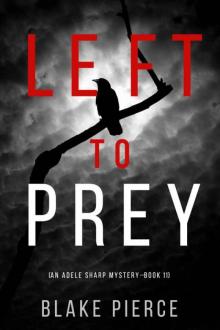 Left to Prey (An Adele Sharp Mystery—Book Eleven)
Left to Prey (An Adele Sharp Mystery—Book Eleven)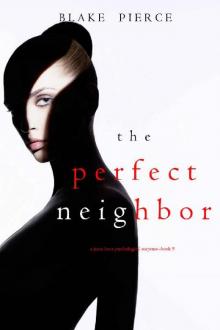 The Perfect Neighbor (A Jessie Hunt Psychological Suspense Thriller—Book Nine)
The Perfect Neighbor (A Jessie Hunt Psychological Suspense Thriller—Book Nine)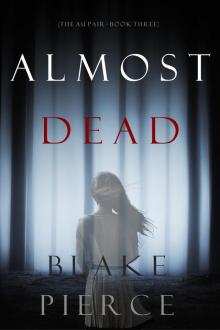 Almost Dead
Almost Dead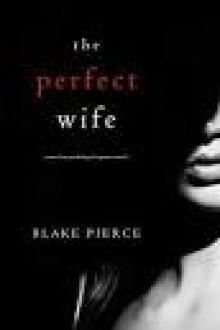 The Perfect Wife
The Perfect Wife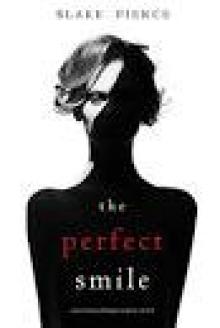 The Perfect Smile
The Perfect Smile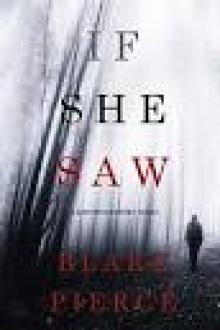 If She Saw
If She Saw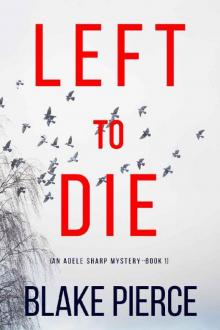 Left To Die (An Adele Sharp Mystery—Book One)
Left To Die (An Adele Sharp Mystery—Book One)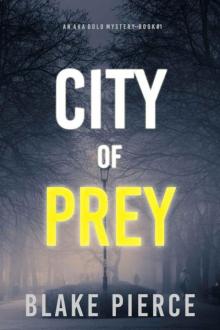 City of Prey: An Ava Gold Mystery (Book 1)
City of Prey: An Ava Gold Mystery (Book 1)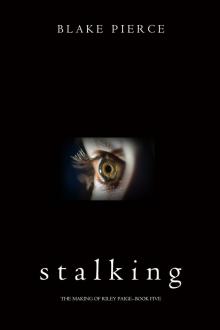 Stalking
Stalking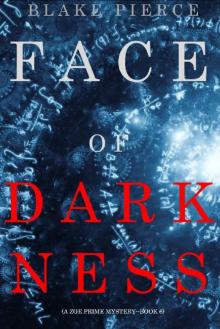 Face of Darkness (A Zoe Prime Mystery—Book 6)
Face of Darkness (A Zoe Prime Mystery—Book 6) The Perfect Mistress (A Jessie Hunt Psychological Suspense Thriller—Book Fifteen)
The Perfect Mistress (A Jessie Hunt Psychological Suspense Thriller—Book Fifteen)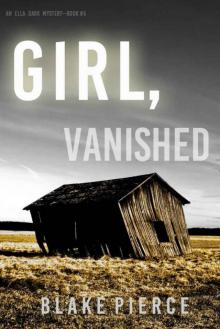 Girl, Vanished (An Ella Dark FBI Suspense Thriller—Book 5)
Girl, Vanished (An Ella Dark FBI Suspense Thriller—Book 5)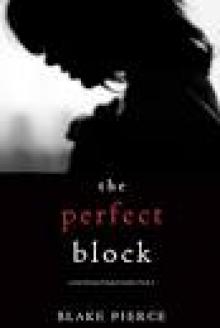 The Perfect Block
The Perfect Block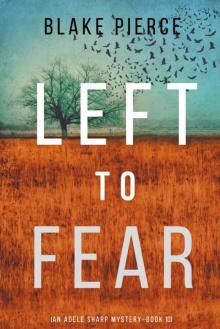 Left to Fear (An Adele Sharp Mystery—Book Ten)
Left to Fear (An Adele Sharp Mystery—Book Ten)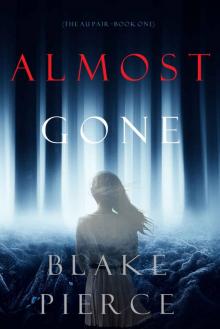 Almost Gone (The Au Pair—Book One)
Almost Gone (The Au Pair—Book One)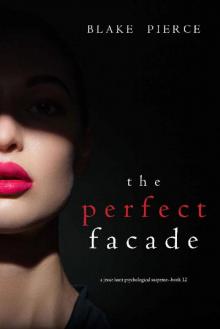 The Perfect Facade (A Jessie Hunt Psychological Suspense Thriller—Book Twelve)
The Perfect Facade (A Jessie Hunt Psychological Suspense Thriller—Book Twelve)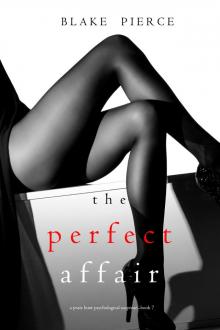 The Perfect Affair
The Perfect Affair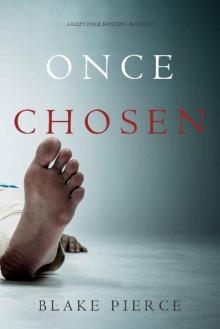 Once Chosen (A Riley Paige Mystery—Book 17)
Once Chosen (A Riley Paige Mystery—Book 17)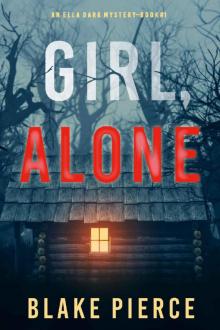 Girl, Alone (An Ella Dark FBI Suspense Thriller—Book 1)
Girl, Alone (An Ella Dark FBI Suspense Thriller—Book 1)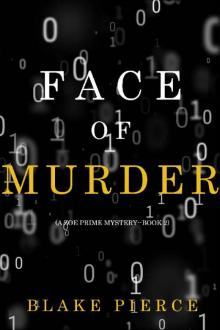 Face of Murder (A Zoe Prime Mystery—Book 2)
Face of Murder (A Zoe Prime Mystery—Book 2)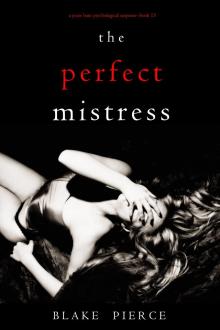 The Perfect Mistress
The Perfect Mistress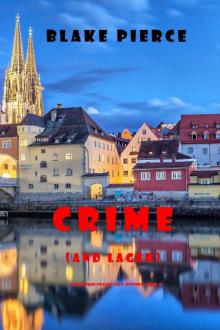 Crime (and Lager) (A European Voyage Cozy Mystery—Book 3)
Crime (and Lager) (A European Voyage Cozy Mystery—Book 3)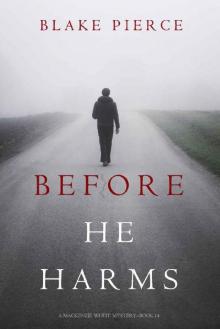 Before He Harms (A Mackenzie White Mystery—Book 14)
Before He Harms (A Mackenzie White Mystery—Book 14)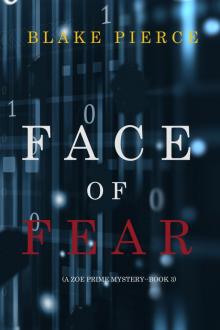 Face of Fear
Face of Fear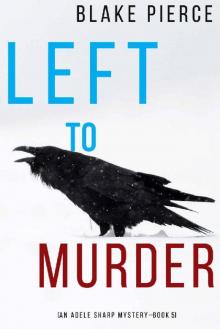 Left to Murder (An Adele Sharp Mystery—Book Five)
Left to Murder (An Adele Sharp Mystery—Book Five)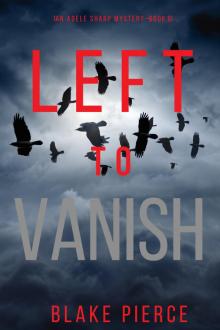 Left to Vanish
Left to Vanish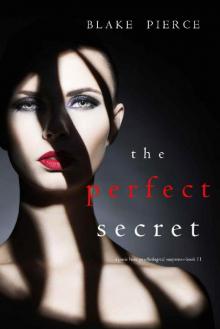 The Perfect Secret (A Jessie Hunt Psychological Suspense Thriller—Book Eleven)
The Perfect Secret (A Jessie Hunt Psychological Suspense Thriller—Book Eleven)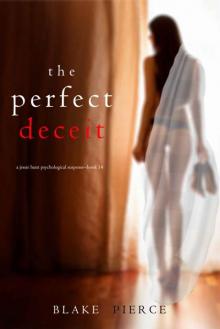 The Perfect Deceit (A Jessie Hunt Psychological Suspense Thriller—Book Fourteen)
The Perfect Deceit (A Jessie Hunt Psychological Suspense Thriller—Book Fourteen)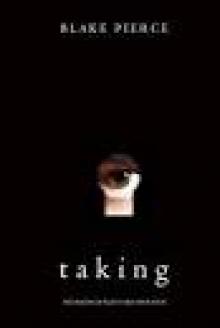 Blake Pierce - The Making of Riley Paige - 4 - Taking
Blake Pierce - The Making of Riley Paige - 4 - Taking Death (and Apple Strudel) (A European Voyage Cozy Mystery—Book 2)
Death (and Apple Strudel) (A European Voyage Cozy Mystery—Book 2) THE PERFECT HOUSE
THE PERFECT HOUSE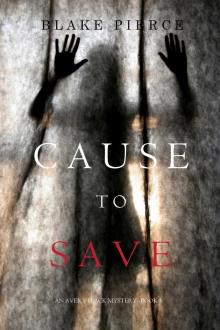 Cause to Save
Cause to Save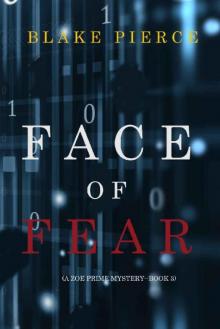 Face of Fear (A Zoe Prime Mystery—Book 3)
Face of Fear (A Zoe Prime Mystery—Book 3)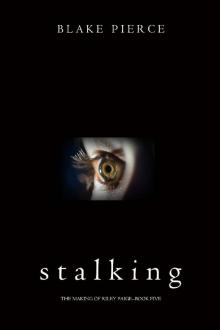 Stalking (The Making of Riley Paige—Book 5)
Stalking (The Making of Riley Paige—Book 5)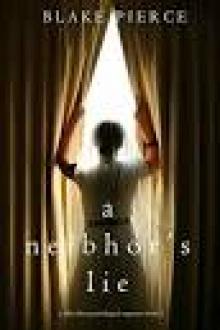 A Neighbor's Lie
A Neighbor's Lie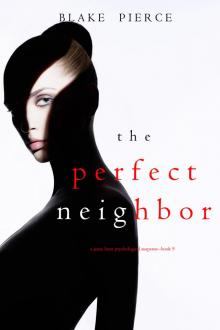 The Perfect Neighbor
The Perfect Neighbor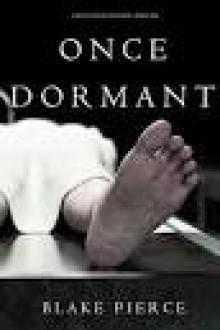 Once Dormant
Once Dormant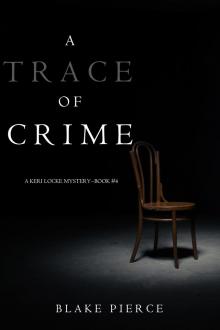 A Trace of Crime
A Trace of Crime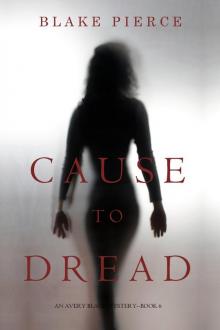 CAUSE TO DREAD
CAUSE TO DREAD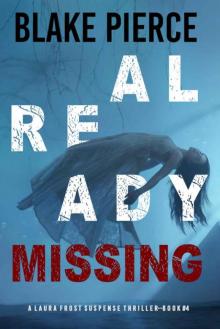 Already Missing (A Laura Frost FBI Suspense Thriller—Book 4)
Already Missing (A Laura Frost FBI Suspense Thriller—Book 4) Waiting
Waiting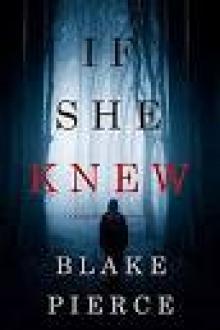 If She Knew
If She Knew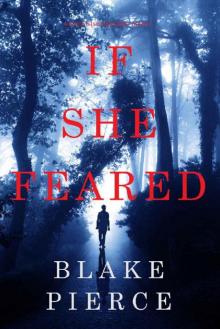 If She Feared (A Kate Wise Mystery—Book 6)
If She Feared (A Kate Wise Mystery—Book 6)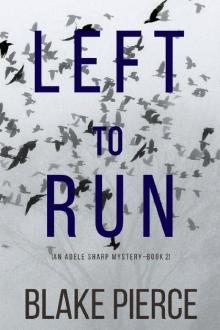 Left To Run (An Adele Sharp Mystery—Book Two)
Left To Run (An Adele Sharp Mystery—Book Two)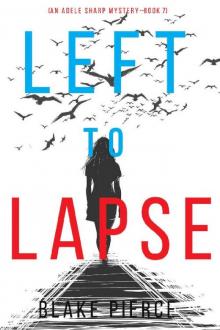 Left to Lapse (An Adele Sharp Mystery—Book Seven)
Left to Lapse (An Adele Sharp Mystery—Book Seven)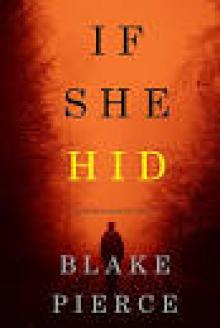 If She Hid (A Kate Wise Mystery—Book 4)
If She Hid (A Kate Wise Mystery—Book 4) The Perfect Alibi (A Jessie Hunt Psychological Suspense Thriller—Book Eight)
The Perfect Alibi (A Jessie Hunt Psychological Suspense Thriller—Book Eight)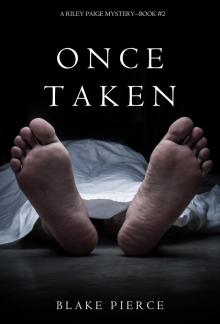 Once Taken
Once Taken Before He Envies
Before He Envies Before He Sins
Before He Sins Mackenzie White 07-Before He Sins
Mackenzie White 07-Before He Sins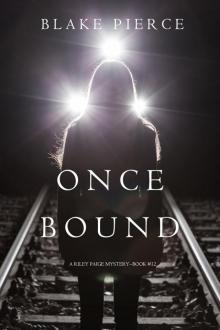 ONCE BOUND
ONCE BOUND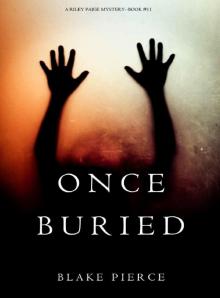 Once Buried
Once Buried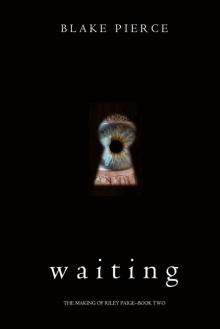 Waiting (The Making of Riley Paige—Book 2)
Waiting (The Making of Riley Paige—Book 2)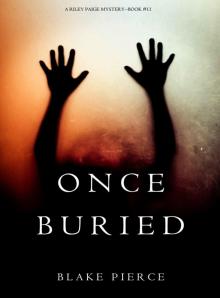 Riley Paige 11-Once Buried
Riley Paige 11-Once Buried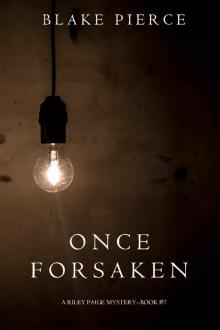 Once Forsaken (A Riley Paige Mystery—Book 7)
Once Forsaken (A Riley Paige Mystery—Book 7)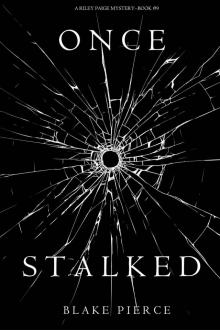 Once Stalked (A Riley Paige Mystery—Book 9)
Once Stalked (A Riley Paige Mystery—Book 9)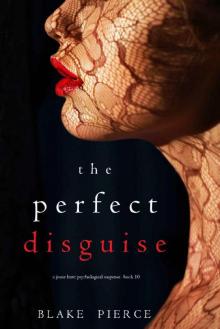 The Perfect Disguise (A Jessie Hunt Psychological Suspense Thriller—Book Ten)
The Perfect Disguise (A Jessie Hunt Psychological Suspense Thriller—Book Ten)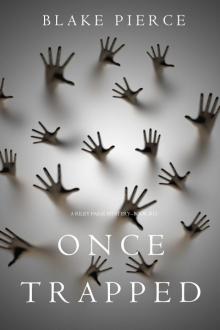 ONCE TRAPPED
ONCE TRAPPED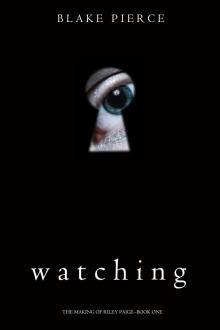 Watching
Watching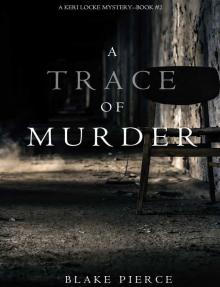 Keri Locke 02-A Trace of Muder
Keri Locke 02-A Trace of Muder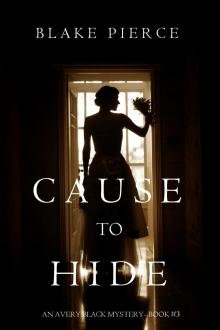 Cause to Hide
Cause to Hide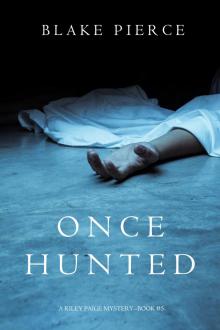 Once Hunted
Once Hunted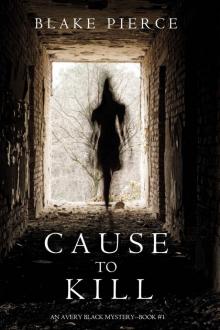 Cause to Kill (An Avery Black Mystery—Book 1)
Cause to Kill (An Avery Black Mystery—Book 1)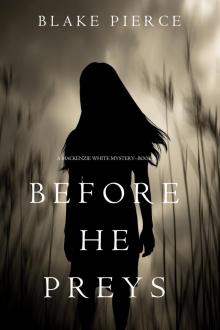 Before He Preys
Before He Preys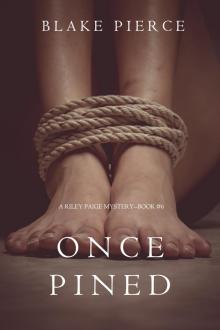 Once Pined
Once Pined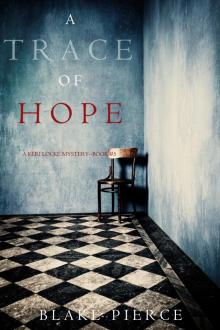 A Trace of Hope
A Trace of Hope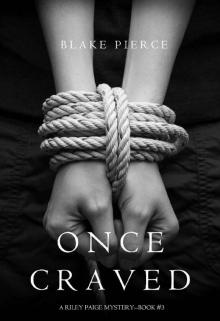 Once Craved (a Riley Paige Mystery--Book #3)
Once Craved (a Riley Paige Mystery--Book #3)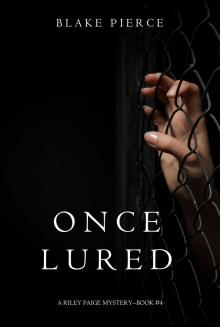 Once Lured
Once Lured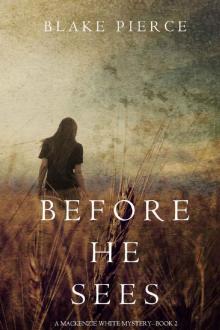 Before He Sees (A Mackenzie White Mystery—Book 2)
Before He Sees (A Mackenzie White Mystery—Book 2) Before he Kills (A Mackenzie White Mystery—Book 1)
Before he Kills (A Mackenzie White Mystery—Book 1)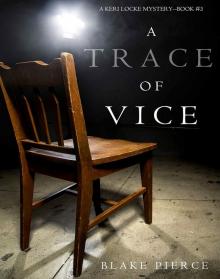 Keri Locke 03-A Trace of Vice
Keri Locke 03-A Trace of Vice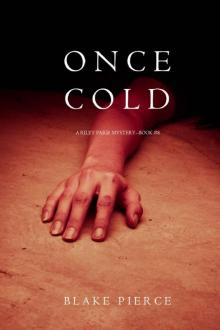 Once Cold
Once Cold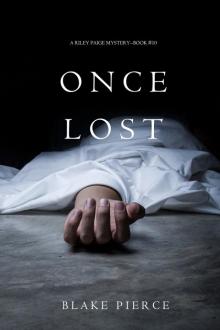 ONCE LOST
ONCE LOST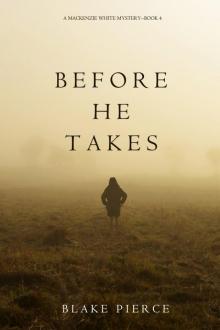 Before He Takes
Before He Takes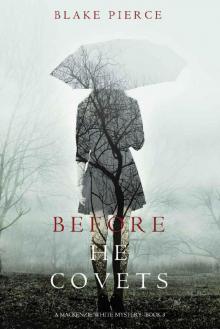 Before He Covets (A Mackenzie White Mystery—Book 3)
Before He Covets (A Mackenzie White Mystery—Book 3) BEFORE HE NEEDS
BEFORE HE NEEDS